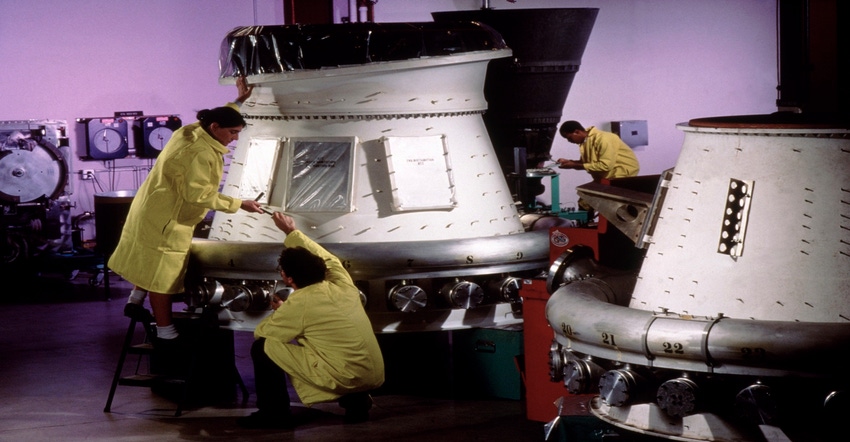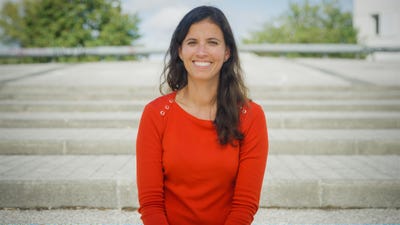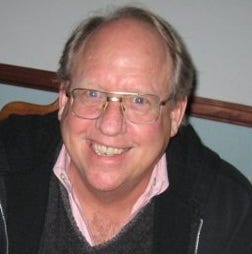Engineering and Aerospace Can Be the Perfect Place for a Woman
Edwina Paisley has created a career that began in engineering and moved into Aerospace and senior management.
July 12, 2023

Edwina Paisley has forged an impressive career in a male-dominated profession and sector. She is now a senior director of Spacecraft Programmes at Inmarsat, which was recently acquired by Viasat. In addition to successfully holding both technical and strategic roles, she has taken inclusive thinking and situational leadership into all her endeavors, making sure that strong confident teams can tackle any challenge brought before them. Her strengths and passions include building lasting relationships, translating the technical into everyday language, ability to influence others, situational leadership, conflict resolution, and the occasional foray into the world of bizarre foods.
Paisley holds a Master of Science in Software Engineering and Development from Carnegie Carnegie Mellon University. She has completed Advanced Design & Engineering of Space Systems, Aerospace, Aeronautical, and Astronautical/Space Engineering from Stanford University. She earned a Bachelor of Science in Computer Science and Mathematics from the University of Nevada-Las Vegas.
We caught up with Paisley to get pointers on creating a career in a male-dominated profession and sector.

Design News: How did you get into STEM?
Edwina Paisley: I was very fortunate growing up that nobody imposed any preconceived ideas about what I should be doing when it came to education. This gave me the opportunity to decide for myself which areas I wanted to focus on. At university, I chose the most challenging subjects because they were the most interesting. Giving women independent choices about what they want to specialize in at an early age is vital. It breaks down gender stereotypes and helps women access industries such as engineering, that are traditionally dominated by men.
When it comes to my own trajectory, I studied Computer Science and Maths before moving into Aerospace. While I did stand out amongst my peers as a girl wanting a career in STEM, I’m pleased to see we’re starting to make progress. According to Engineering UK, women now make up 16.5% of the 5.7 million working in the engineering and technology sectors today – growing six percentage points in the last 11 years.
DN: Why was engineering appealing?
Edwina Paisley: When choosing a career in engineering, I wanted to do something fun, something cool, and something that didn’t feel like I was coming to work every day. And my advice to girls out there is to do the hard things. You can do it. Everything else will fall into place.
The great thing about the hard sciences is there’s no need to have the “perfect” degree to match the “perfect” job. A solid grounding is what’s important. For instance, after my studies, I wanted to create and innovate so I began my career designing and testing missiles. Missiles don’t last very long though, which is why I decided to transition into space where projects have a longer lifespan.
DN: In the engineering field, what drew you to aerospace?
Edwina Paisley: Aerospace is a field where I get to experience that same childlike wonder that drove me into the sector. Launching satellites is intrinsically very exciting; every launch is a career highlight. My most recent work – launching the I-6 satellites – is the pinnacle, as ultimately this development will support the 5G network and deliver faster and even more reliable maritime and aviation connectivity, particularly for safety-critical systems. There’s nothing like seeing a project through from conception to the final product. It is a mindset shared by the brilliant peers I am lucky enough to work with.
DN: What’s your advice for the next generation of engineers?
Edwina Paisley: Over the course of my career, I have realized the value of mentors and for me, there have always been two types of role models: quantitative and qualitative.
Quantitative mentors are technical. They help build up your knowledge of the subject matter. Qualitative mentors help you develop people management skills. Combining the two was a recipe for success for me and has helped me progress quickly.
As well as finding a mentor, my advice to future engineers would be to put the time in to build expertise right at the beginning of your career. You can generalize at any stage of your development but specialising in a specific area takes time and dedication. I believe having a deep understanding of a subject can generate confidence and help carve out a position of authority within a team from the outset. Most senior engineers only have one area of expertise, so it is unlikely to limit development.
Alongside those two key learnings, I’d say good engineers are curious engineers: ask as many questions as you can, as often as you can, and to as many people as possible – the answers you receive will form the engineer you will become.
DN: What is Inmarsat doing to encourage more women to pursue a career in engineering?
Edwina Paisley: The recent acquisition by Viasat has created the biggest organization in our industry, and that means we need to be playing a leading role in shaping the future workforce. We need to be ahead of everyone else with tech innovation to stay competitive in such a fast-moving market, so the more diverse perspectives and experiences we bring to that, the more exciting that becomes. Continuing to attract people from an even broader range of backgrounds – including women in STEM careers – will not only help us achieve that but will also ensure our organization remains just a really great place to work.
We take great pride in our STEM committee - which engages with all education levels to get young women excited about space, providing mentorship to give them the confidence to get involved in science. I was also on the inaugural board for the company’s Women’s Diversity Network, which provides support for underrepresented groups in the business to expand their opportunities. Educating and providing role models is one of the most important things we do. We see our wider role as working with schools to help teachers explain what careers are available to students if they pursue STEM subjects.
DN: How can the engineering profession encourage women to participate?
Edwina Paisley: I think mentoring and outreach are important. It’s very encouraging to see a marked increase in the presence and engagement of girls and young women in the audience. It's important to show young girls that roles in the hard sciences can be held equally by men and women alike, and the best way is to demonstrate it. The industry must continue to promote the incredible opportunities provided by an education in the sciences.
Engineering takes a specific kind of person, that person’s gender is irrelevant. If you have passion, ingenuity, and curiosity you’ll go far. Set your own agenda and reach out for experiences. No one’s going to do it for you, but the support is now there.
Nothing compares to seeing the first twinkle in their eyes as something clicks in their minds and they think “She did that, so I can do it too.” As recently as a few weeks ago, I was doing an outreach event at my children's school, and towards the end of the session, one of the 8-year-old girls raised her hand. I called on her and asked if she had a question, and she politely and concisely said “No, I don’t have a question. But I just want to say that I want to be an engineer too when I grow up.” Maybe she will, or maybe she won’t, but at least she’s now added it to the top of her list of things to aim for!
DN: Do you think the space sector could be doing more to support women in technology?
Edwina Paisley: The space industry is doing a lot to champion women in traditionally male-dominated careers. The challenge is that it has been male-centric for so long that leadership tends to be made up of men – only time will fix this. The more women you have at the junior level the more will bubble to the top.
I consider it my duty as a woman in a leadership role to encourage future generations to pursue sciences by showing them what is possible. There are glaringly few well-known female role models in STEM- having these figures to look up to is vital to give girls the confidence that anyone can pursue and succeed in a STEM career.
About the Author(s)
You May Also Like


.jpg?width=300&auto=webp&quality=80&disable=upscale)


